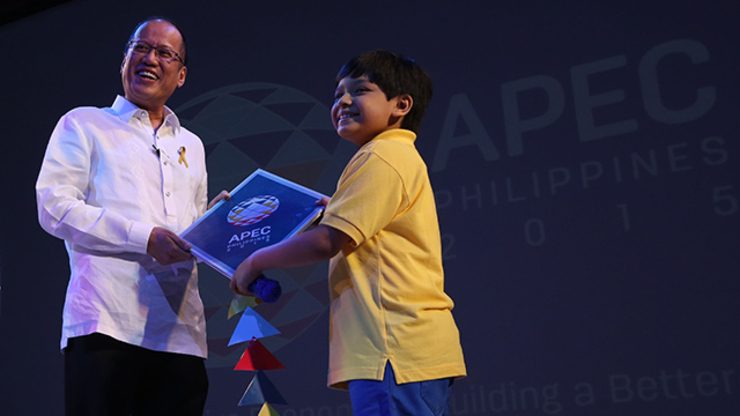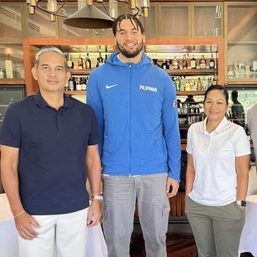SUMMARY
This is AI generated summarization, which may have errors. For context, always refer to the full article.

MANILA, Philippines – In the recently concluded 2014 APEC (Asia-Pacific Economic Cooperation) Summit in Beijing, China advanced a number of programs that the Philippines, as the 2015 hosts, will have to take on and continue.
In an exclusive interview with Rappler, a day after the APEC inaugural meeting in Manila ended, APEC Secretariat Executive Director Dr Alan Bollard, said the Philippines’ role will be taking the lead in these initiatives.
“The Philippines will be the one that keeps all that moving, chairs all the groups working on that. Those things don’t just happen,” he said. “They require intense meetings and projects, and work programs for the 40 to 50 working groups we’ve got in APEC. Many of those will be meeting in the Philippines this year.”
Here are the top 3 initiatives started in China that the Philippines will have to carry on, according to Bollard.
Developing the Free Trade Area of the Asia Pacific (FTAAP)
China’s “big deliverable,” according to Bollard, was an agreement among APEC economies to do a study on the FTAAP. It’s the Philippines however, that will need to put the mechanisms together to come up with an agreement on what the FTAAP will look like.
“We know there’s a number of trade negotiations underway. We’re looking beyond those right out into the middle distance, saying, ‘What would a really free trade area look like? How will we get there? How might we combine the various trade negotiations currently underway to get there? How do we stop one part of the Pacific room from going on one direction, and another part going off on another direction?” Bollard said.
He added: “That’s the subject of a big study that will be started this year. The Philippines will be putting in place all the mechanisms to get an agreement on what that should be and how it should proceed.”
Improving connectivity
Bollard acknowledged that infrastructure is burgeoning all over the region – the challenge is connecting in a way that will facilitate trade easier, and more efficiently.
“There’s a lot going on about ensuring we’ve got the same sort of systems in borders. We call it trade facilitation, reducing red tape in borders, and making sure electronic commerce is working to help goods and services get across borders, and help harmonize and have the same sort of systems in the Pacific room,” he said.
“So that if exporters in the Philippines are exporting to whether it’s China or the United States, that we help them facilitate those goods going through customs, through health and security checks, through logistical arrangements, common data standards.”
Despite technical advances, the Philippines will have to work on improving the system to help goods cross borders.
“We want to make sure they are helping goods get across borders, and they are doing it in the same way that there’s not a single China system, and a Japan system and a US system but a single Pacific system,” Bollard said.
Increased mobility
Another goal of APEC is to find a way to facilitate easier travel among the people in the Asia-Pacific Region, not just among businessmen but among students and tourists – especially with the increase in tourism in recent years.
“We’ve been running for some years an APEC Business Travel Card, which means business people can get fast-track entry into these different economies. We’d like to see whether there’s a way to extend that to other skill groups,” he said.
“We’re looking at ways of getting improved tourist mobility across the region because tourist flows are just increasing so fast at the moment. We’ve got to have ways of doing that.”
In addition, APEC is also looking at encouraging student mobility through APEC scholarships. – Rappler.com
Add a comment
How does this make you feel?





There are no comments yet. Add your comment to start the conversation.